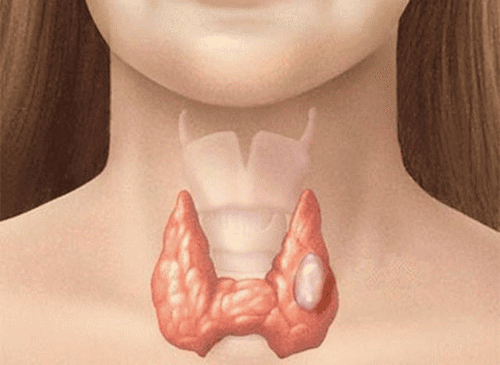Thyroid medication is used to treat both hyperthyroidism and hypothyroidism. Long-term use of these medications may cause discomfort, forgetfulness, or even side effects, leading some patients to stop taking them on their own. However, abruptly stopping thyroid medication can lead to serious health consequences.
1. What is thyroid medication?
The thyroid gland is an endocrine gland located in the front of the neck that is responsible for producing thyroid hormones. Thyroid hormones help the body use energy, stay warm, and keep the brain, heart, muscles, and other organs functioning properly.
Thyroid disease can be caused by hyperthyroidism (overactive thyroid) or hypothyroidism (underactive thyroid). Each condition requires different medications, but in all cases, patients should not stop taking medication without their doctor's approval.
In hyperthyroidism, patients need to take medications to suppress thyroid function and reduce the production of thyroid hormones.
In hypothyroidism, especially in cases after thyroid surgery due to thyroid cancer or goiter… when the body can no longer produce thyroid hormones, patients need to take synthetic thyroid hormones for their entire lifetime.

2. Dangers of abruptly stopping thyroid medication
2.1 Dangers of abruptly stopping thyroid medication
Treatment for hyperthyroidism often requires long-term medication. Unfortunately, these medications can cause various side effects, leading some patients to discontinue treatment without consulting their doctor. This can be extremely dangerous as abruptly stopping antithyroid medications can lead to several complications:
- Thyroid storm: Abruptly stopping antithyroid medications can trigger a thyroid storm, a medical emergency characterized by high fever, rapid heart rate, emotional disturbances, and increased central nervous system activity. If left untreated, it can lead to heart failure, pulmonary edema, circulatory collapse, coma, and death within 72 hours. Although rare, this can occur in individuals who prematurely stop taking antithyroid medications.
- Increased heart rate: Hyperthyroidism causes an increased heart rate. Antithyroid medications help stabilize heart rate. Abruptly stopping these medications can lead to a surge in thyroid hormones, causing the heart to beat faster.
- Fatigue: Hyperthyroidism increases the body's basal metabolic rate, leading to increased energy consumption and fatigue. Stopping medication can exacerbate these symptoms.
- Increased body temperature: Elevated body temperature is a common symptom of hyperthyroidism. Discontinuing medication can worsen this condition.
While antithyroid medications may cause side effects, it is essential to weigh the benefits against the risks. In some cases, medications may cause a decrease in white blood cell count, requiring monitoring during the initial phase of treatment. Any decision to start, stop, or adjust medication should be made in consultation with a doctor.

2.2 Dangers of abruptly stopping thyroid hormone replacement
Thyroid hormone replacement therapy is used to treat hypothyroidism, especially after thyroid surgery for thyroid cancer. Abruptly stopping this medication can lead to the following complications:
- Poor appetite: Patients may experience fatigue, lack of appetite, and a general feeling of unwellness.
- Depression and dementia: Thyroid hormones are essential for normal brain function. Low thyroid hormone levels can lead to depression, memory loss, and impaired cognitive function.
- Slow heart rate: Hypothyroidism can cause a slow heart rate, sometimes below 60 beats per minute. This can lead to fatigue, decreased exercise tolerance, and inadequate oxygen supply to the body.
- Irregular menstruation: Irregular menstrual cycles are a common symptom of hypothyroidism in women.
- Decreased libido: Stopping thyroid hormone replacement therapy can negatively impact sexual desire and function.
- Weight gain and obesity: Hypothyroidism slows down the body's metabolism, leading to weight gain.
Thyroid hormone replacement therapy is essential for individuals whose bodies cannot produce enough thyroid hormone. Therefore, it is crucial to continue taking the medication as prescribed, even if side effects occur. Consulting with a healthcare provider is essential before making any changes to the medication regimen.
Abruptly stopping thyroid medication can have serious health consequences. It is crucial to consult with a healthcare provider before making any changes to your medication regimen.
Please dial HOTLINE for more information or register for an appointment HERE. Download MyVinmec app to make appointments faster and to manage your bookings easily.













